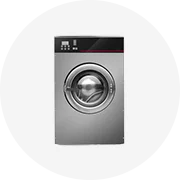Top categories

Financial Equipment

Restaurant & Hotel Supplies

Funeral Supplies

Advertising Equipment

Commercial Robots

Trade Show Equipment

Warehousing & Supermarket Supplies

Commercial Laundry Equipment

Vending Machines

Other Service Equipment

Digital Signage

Party Supplies
About products and suppliers
In the bustling world of food service and retail, the longevity and quality of produce can make or break a business. Maximizing freshness is not just a matter of sourcing the best vegetables; it's also about how they're stored. Commercial vegetable refrigerators are the unsung heroes in this quest for preservation. This ultimate guide delves into the world of commercial refrigeration, exploring the various types designed to meet the specific needs of businesses, from bustling restaurants to busy healthcare facilities. We'll navigate through the complexities of temperature control, material durability, and storage practices to ensure that your business's vegetables remain as fresh as the day they were picked.
Understanding Commercial Vegetable Refrigerators

Commercial vegetable refrigerators are essential for various business needs, particularly for preserving freshness in perishable goods. These refrigeration units come in different sizes, catering to a range of commercial requirements. Industrial-sized refrigerators are designed for manufacturers who require large-scale storage solutions, while restaurant owners might opt for smaller, more specialized units tailored to their needs. For instance, there are freezers specifically designed for ice cream or beverage cooling, suitable for bars and eateries.
In addition to stationary models, mobile refrigeration units like truck refrigerators are available for transporting perishable goods. The healthcare sector also has specific needs, with medical refrigerators designed for storing sensitive medical supplies. Convenience stores often prefer display refrigerators or glass door freezers, which not only preserve items at optimal temperatures but also enhance product visibility to attract customers. Deli cases are another type of commercial refrigerator, ideal for displaying and preserving meats, cheeses, and prepared salads and sandwiches.
Types of Vegetable Refrigerators on Alibaba.com

Exploring the diverse range of commercial vegetable refrigerators on Alibaba.com reveals a variety of options tailored to different business needs. Industrial-sized refrigerators cater to manufacturers with larger storage requirements, while restaurant owners might opt for specialized restaurant refrigerators. For those in the dessert industry, ice cream freezers are available, and bars can benefit from commercial beverage coolers designed to keep drinks at the perfect temperature.
Deli cases are another type of refrigerator found on Alibaba.com, ideal for preserving and displaying meats, cheese, salads, and sandwiches. For businesses that require refrigeration on the go, truck refrigerators provide a solution for transportation needs. In contrast, medical refrigerators serve the specific requirements of medicine companies, hospitals, and pharmacies with precision cooling.
Convenience stores often prefer display refrigerators and glass door freezers, which not only maintain cool temperatures for drinks and fruits but also enhance product visibility to attract customers. Each type of commercial vegetable refrigerator is designed with specific features to address the unique preservation needs of various food and beverage items, ensuring freshness and quality.
Key Features to Look for in Commercial Vegetable Refrigerators
When selecting a commercial vegetable refrigerator, key features to consider include door type and material, as well as other operational features. Door options, such as swing or half doors, should be chosen based on kitchen layout and space efficiency. The door material also plays a crucial role, with options like solid doors for better insulation and glass doors for visibility and inventory checks.
Operational features that enhance the functionality of vegetable refrigerators include removable gaskets for easy cleaning and digital thermostats for accurate temperature control. These features not only contribute to maintaining the freshness of vegetables but also help in reducing service costs through efficient temperature management.
Additionally, the design and construction features of the refrigerator can impact its performance. Specification Line models often offer advanced temperature controllers and a variety of options for exteriors and interiors, which can be beneficial for businesses looking for customized solutions. Considering these features when purchasing a commercial vegetable refrigerator can lead to better preservation of produce and more efficient operation.
The Importance of Temperature Control and Uniformity
Maintaining the correct temperature is crucial for prolonging the storage life of fruits and vegetables, as it directly influences their respiration and metabolic rates. Lower temperatures are known to slow these rates down, thereby delaying ripening and senescence processes. This is essential for businesses looking to preserve the freshness and quality of their produce for as long as possible. However, it's important to note that temperatures that are too low can be just as harmful as those that are too high. Freezing can cause damage to many types of produce, although some can withstand multiple freeze-thaw cycles without deterioration. Conversely, produce that requires warmer storage temperatures can suffer from chilling injuries if exposed to near-freezing temperatures, leading to various symptoms that may not manifest until after the produce is returned to warmer conditions. Therefore, for commercial vegetable refrigerators, achieving and maintaining the ideal temperature range is imperative to minimize spoilage and extend shelf life, ensuring that vegetables remain fresh and of high quality for consumers.
Selecting the Right Material for Durability and Hygiene
When selecting materials for commercial vegetable refrigerators, it's crucial to prioritize durability and hygiene. The materials used in the construction of refrigerators and freezers should be resistant to wear and penetration by vermin. Additionally, they must withstand the effects of foods, cleaning compounds, sanitizers, and refrigerants that they come into contact with during use. This ensures that the refrigeration units not only last longer but also maintain the highest standards of food safety by preventing contamination. While the original content does not specify the types of materials, it's understood that stainless steel is often the material of choice in the industry due to its strength and ease of cleaning. The requirements set by standards such as NSF/ANSI 7-2023 serve as a guideline to protect food from contamination and to ensure that the materials can endure the rigors of a commercial kitchen environment.
Advantages of Investing in Quality Refrigeration for Your Business

Investing in commercial refrigeration units like vegetable refrigerators offers several benefits for businesses. The larger compressors in commercial fridges ensure that perishables are cooled more efficiently and quickly, which can enhance the flavor and extend the shelf life of vegetables. This is crucial for businesses that rely on the freshness of their produce to attract and retain customers.
Durability is another significant advantage. Commercial refrigerators are designed to withstand the frequent use encountered in a busy commercial setting. Features such as stronger hinges and robust handles can endure the constant opening and closing, which is common in high-traffic kitchens.
Commercial refrigerators are also tailored for industry-specific needs. For instance, models with glass doors facilitate easy location of items, which is particularly beneficial for businesses that display produce for sale. Additionally, the design of these refrigerators often allows for more straightforward deep cleaning, meeting the stringent hygiene standards required in the food industry.
Energy efficiency is a key consideration as well. Commercial refrigeration units that are energy-efficient can lead to significant cost savings over time, as they are designed to consume less power while maintaining optimal performance, even when operating continuously.
Lastly, the design and layout of commercial vegetable refrigerators are intended to support the operational flow of a business. They can be shaped to fit various spaces and purposes, such as counter fridges for prep areas or display freezers for customer-facing sections. This adaptability ensures that businesses can maintain a high level of service and presentation for their produce.
How to Maximize Freshness with Proper Storage Practices
Storing vegetables correctly is crucial for maintaining freshness, especially in a commercial setting. Leafy greens, for instance, benefit from being rinsed, then wrapped in a towel and refrigerated in a container or sealed bag. This method is suitable for lettuce, bok choy, and similar vegetables. Asparagus should be kept moist in the fridge, either wrapped in a damp towel or standing in water.
Root vegetables like potatoes, onions, and garlic prefer a cool, dark, and dry place such as a cupboard or root cellar. Tomatoes, on the other hand, should ripen at room temperature before refrigeration. It's important to store vegetables away from fruits to prevent premature ripening.
The storage life varies: asparagus and green beans may last 3-4 days in the fridge, while carrots and parsnips can stay fresh for up to 3-4 weeks. Regularly consuming and rotating stock is key to preventing waste. For longer storage, consider freezing vegetables, which can extend their usability.
Proper storage in commercial refrigeration units involves using the crisper for items like carrots and celery, while mushrooms are best in a paper bag. Regular maintenance of the refrigerator, including temperature checks and cleaning, will ensure the longevity of both the appliance and the vegetables it stores.
Maintenance Tips to Extend the Life of Your Refrigerator
Maintaining your commercial vegetable refrigerator is crucial for its longevity and efficiency. Regular cleaning of both the interior and exterior is essential. For the interior, remove all contents and clean shelves with warm water and soap. This prevents food spoilage and maintains cooling capacity. The exterior requires attention too, with routine cleaning to prevent scratches and corrosion. Use warm water and a mild detergent solution, and for added shine, a stainless steel polish can be applied.
The condenser and evaporator coils are vital components that need regular cleaning to prevent overheating and ensure efficient operation. Use an air compressor and a small brush for the condenser coils, and a coil cleaner for both sets of coils. The evaporator coils, in particular, should be kept free from grease and grime, especially if near cooking equipment.
Air filters should be checked and cleaned to prevent clogging, which can impede ventilation. If too dirty, they should be replaced. Drain pans and tubes also require regular cleaning to prevent blockages that can cause the unit to freeze up. Monthly cleaning is recommended.
Inspect door gaskets monthly to ensure they are sealing properly. Any cracks or splits can lead to cool air escaping, affecting the refrigerator's performance and potentially causing food spoilage. Replace gaskets as needed according to the manufacturer's recommendations.
Lastly, manage moisture by wiping up any accumulated water inside the unit. Regular checks for condensation behind shelves can prevent moisture buildup, which can lead to freezing issues. Keeping your unit dry is a simple yet effective way to prolong its life.
Conclusion
Investing in the right commercial vegetable refrigerator is a critical decision for any business that relies on the freshness of its produce. From understanding the different types available to recognizing the importance of temperature control and uniformity, this guide has highlighted the essential features and benefits of various refrigeration units. Quality refrigeration not only extends the shelf life of vegetables but also enhances their flavor, supports operational flow, and meets stringent hygiene standards. Proper storage practices and regular maintenance are key to maximizing the potential of these units. By adhering to these guidelines and investing in quality equipment, businesses can ensure that their vegetables remain fresh, their operations run smoothly, and their customers are satisfied. Remember, the freshness of your produce is a reflection of the quality of your business, and a robust refrigeration system is the backbone of that freshness.










 浙公网安备 33010002000092号
浙公网安备 33010002000092号 浙B2-20120091-4
浙B2-20120091-4